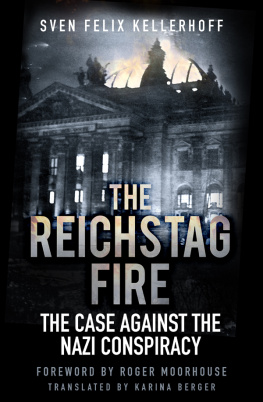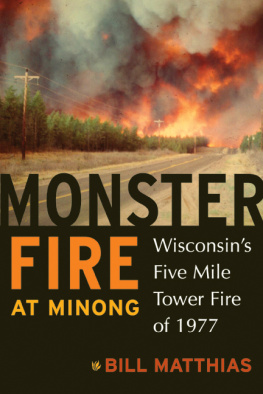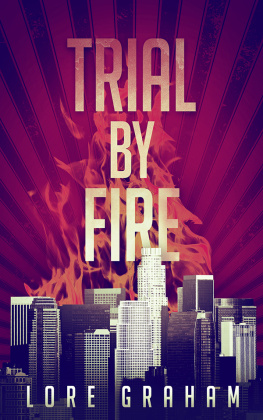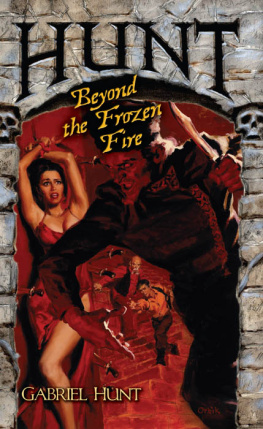THE REICHSTAG FIRE
THE REICHSTAG FIRE
THE CASE AGAINST THE NAZI CONSPIRACY
SVEN FELIX KELLERHOFF
TRANSLATED BY KARINA BERGER

Cover illustration: Reichstag fire, 27 February 1933. (Pictorial Press Ltd/Alamy Stock Photo)
Originally published in German as Der Reichstagsbrand, 2008
This English language edition first published 2016
The History Press
The Mill, Brimscombe Port
Stroud, Gloucestershire, GL5 2QG
www.thehistorypress.co.uk
be. bra verlag, Berlin-Brandenburg, 2008
English translation Karina Berger, 2016
The right of Sven Felix Kellerhoff to be identified as the Author of this work has been asserted in accordance with the Copyright, Designs and Patents Act 1988.
This ebook is copyright material and must not be copied, reproduced, transferred, distributed, leased, licensed or publicly performed or used in any way except as specifically permitted in writing by the publishers, as allowed under the terms and conditions under which it was purchased or as strictly permitted by applicable copyright law. Any unauthorised distribution or use of this text may be a direct infringement of the authors and publishers rights, and those responsible may be liable in law accordingly.
EPUB ISBN 978 0 7509 6943 7
Original typesetting by The History Press
eBook converted by Geethik Technologies
CONTENTS
PREFACE TO THE ENGLISH EDITION
T he ritual is always the same: at the beginning of each year, by mid-February at the latest, a string of articles, sometimes even entire books, are published about the Reichstag fire that took place on the evening of 27 February 1933. Nearly all of these publications, almost invariably written by the same group of authors, claim to contain new insights or new interpretations about the arson attack that had the most serious consequences in world history. For this is exactly what the flames in the German parliament building, exactly four weeks after Hitlers appointment as Reich chancellor, turned out to be: a fiery signal for the Nazi dictatorship that proved so disastrous for Germany and Europe, and cost millions of people their lives.
Almost all of these articles and books have something else in common: they present supposed inconsistencies, alleged suspects or so-called facts which have in fact been known for decades. The latest book by the American historian Benjamin Carter Hett, published in 2014, is a case in point.
Burning the Reichstag: An Investigation into the Third Reichs Enduring Mystery is nothing but an indictment, containing not a single new argument or piece of evidence. Those who are familiar with the extensive body of literature on the topic will be very surprised to see that Hett revisits several well-known claims that have long been refuted. In his desire to prove the National Socialists role in the arson attack, he cites practically every piece of evidence, no matter how absurd.
Now, working with a hypothesis is certainly a valid approach. Of course one can support the assumption that the National Socialists set the Reichstag on fire as an excuse to brutally enforce their dictatorship. However, historical scholarship is ultimately based on sources: hypotheses that consistently contradict undoubtedly genuine sources are of no use and are excluded from serious discourse. Usually, this works rather well except in the case of the Reichstag fire.
For instance, in his book, Hett names Hans Georg Heini Gewehr as the possible perpetrator around 200 times. Now, it is true that Hans-Bernd Gisevius, a former Gestapo officer and later self-proclaimed resistance fighter against Hitler, claimed that Gewehr was responsible for the crime during the Nuremberg Trials for major war criminals in 1945. However, Gisevius, one of the great storytellers about the Third Reich, was forced to retract his main allegations, as there was no evidence whatsoever. The claim that Hans Georg Gewehr was part of a Nazi stormtrooper [the Sturmabteilung, or SA] arsonist commando is quite simply made up.
Yet this does not seem to be a problem for Benjamin Hett, or any of the other authors who, again and again, write about the events and the consequences of 27 February 1933, who rehash the well-known conspiracy theories that have already been debunked several times. This book, however, takes a different approach. Based on fifteen years of research, and a thorough and unbiased analysis of the case file, it investigates the criminal case of the Reichstag fire; in other words, its career.
This book explains what really happened on that cold Monday evening in Berlin. It uncovers how the belief that the Nazis were the culprits established itself a belief that runs contrary to all available facts, but that is encouraged by all the other terrible crimes they committed. This book also takes Marinus van der Lubbes repeated confession seriously. It is not the first book to do this, but it bases its analysis on more sources than have ever been used before. Van der Lubbe claimed: I have been asked whether I carried this act out alone, and I declare that this was the case. Nobody helped me.
During his speech to introduce the first German edition of the book in February 2008, just before the Reichtag fires seventieth anniversary, Norbert Lammert, the current president of the German Bundestag, said: Whether this book will end the highly political dispute remains to be seen. However, it is certain that it offers an important contribution [to its resolution]. Frank Bajohr, a historian from Hamburg, phrased it similarly carefully: I hope Kellerhoffs book can end the controversy, but I doubt it. He explained further: After all, his book shows that the subject has proved popular with conspiracy theorists and meddlers who have more than once exploited the medias sensationalist nature.
Now, several years after the first edition was published in Germany, it is clear that both Lammert and Bajohr were right. Even though those who believe in the Nazis guilt were unable to find fault with the book on factual grounds, they nonetheless demanded, by way of a string of lawsuits, that the book be taken off the shelves. However, their objection was based on just one accidently incorrectly referenced internet article. As they were unable to come up with substantial objections, they opted for insults and slander instead.
There is little value in such an approach. Those who avoid fact-led debates because they lack valid arguments ought to reconsider their hypothesis. But that is something conspiracy theorists never do. They simply repeat their arguments, perhaps packaged slightly differently, but mostly just more loudly and heatedly. However, this does not aid the advancement of knowledge in any way.
Perhaps the hope that, one day, serious historical scholarship will prevail in the debate about the Reichstag fire is misguided. This book cannot do more than to present the actual facts and explain the background to the debate since 1945. Unlike Hetts latest book, and many similar publications before his, this book remains objective at all times. None of the big questions remain unanswered, apart from one: why do Hett and his allies, to the present day, feel they have to prove the Nazis guilt?
To debunk the theory that it was the Nazis themselves who set the Reichstag on fire, a notion originally put forward by upstanding opponents of Hitler, does not change the historical facts of the Holocaust or the war of annihilation waged by the Wehrmacht. On the contrary, replacing false claims with indisputable facts is undoubtedly progress. It is not true that four million people were gassed or killed in other ways in Auschwitz-Birkenau, as was claimed for decades, even into the 1990s. The real number is 1.1 million or more, of which at least 900,000 were deported Jews. Although the figure is smaller, it does not make the monstrous genocide of the Jews a lesser crime.
Next page









